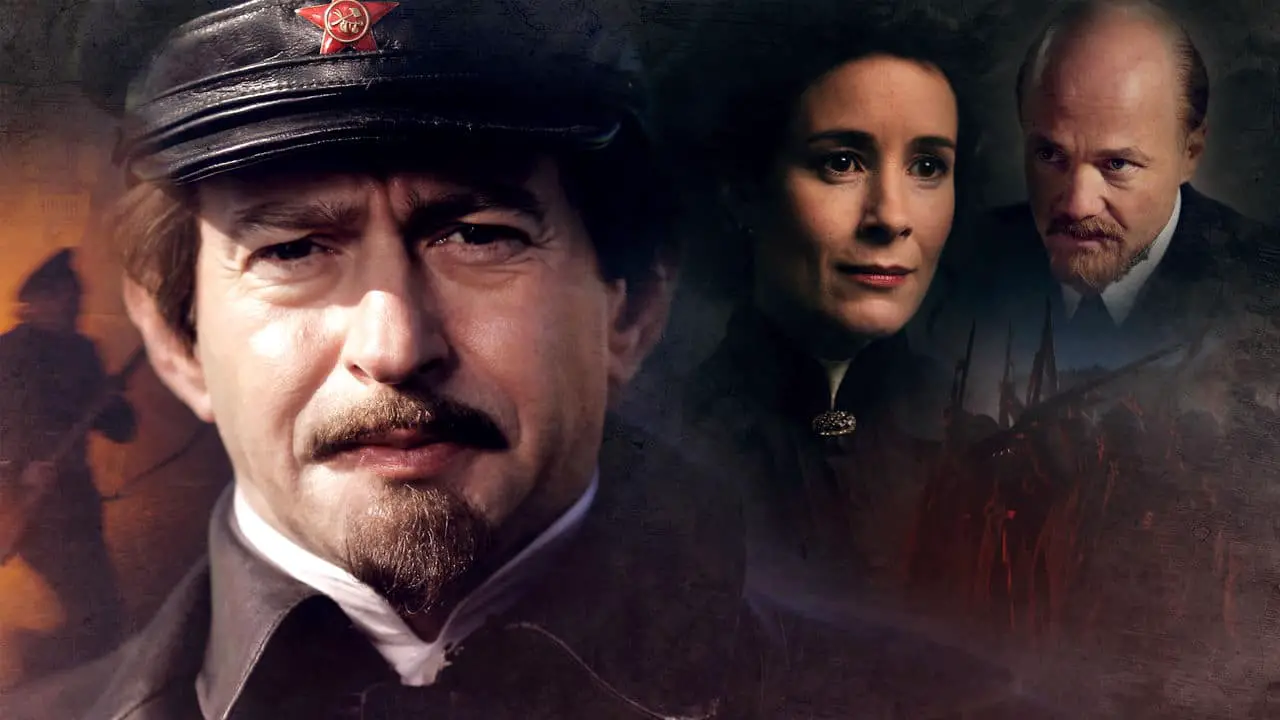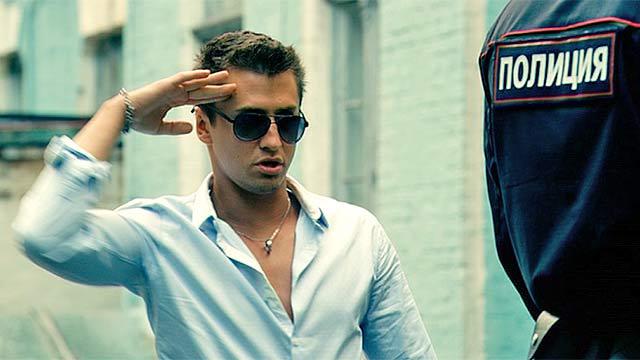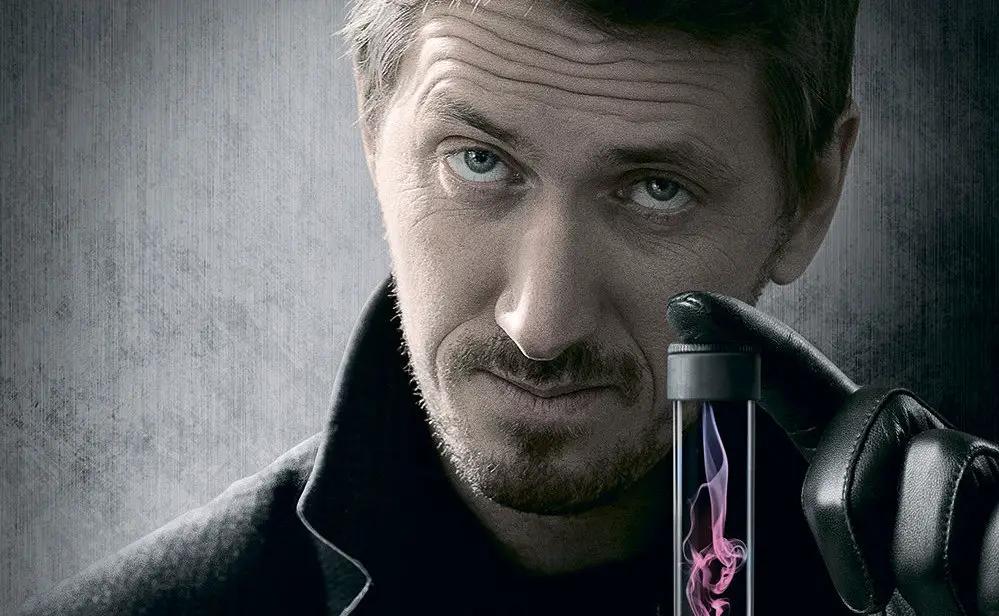Троцкий (Trotsky) is an eight-episode TV mini-series featuring the life of Leon Trotsky, a Russian Marxist revolutionary and Soviet politician. It was directed by Alexander Kott and Konstantin Statsky and stars Konstantin Khabensky as Leon Trotsky, who was effectively reprising a role he created and first performed more than a decade ago in biographic series called Esenin, dedicated to Soviet poet Sergei Esenin. Троцкий was created in collaboration with PP Productions of Mexico and Sreda Productions of Russia. The series depicts Trotsky’s life during his time in Mexico City, where he lived out his final years.
Троцкий debuted on Russia’s Channel One on November 6, 2017, as part of a commemoration of the 100th anniversary of the 1917 Russian Revolution. Following its release, Троцкий become the most popular TV series on Russian television between November 6 to 12, 2017, overtaking another series, Demon of the Revolution, which was being aired during the same time slot on rival Russia Channel, and which followed other revolutionary characters.
The rights to Троцкий were picked up by Netflix, which offered it for streaming in 2018 with English subtitles and Spanish dubbing. Chinese and Spanish subtitles were also made available, making the series accessible to a wide range of viewers.
Троцкий assumes that viewers have a basic understanding of the revolution and the rivalry that developed between Leon Trotsky and Joseph Stalin after the death of Lenin. Stalin eventually banished Trotsky in 1929, who, in exile in Mexico City, was eventually murdered by a Soviet operative. Троцкий portrays Trotsky positively and is obviously meant as a testament to his historical legacy.
Below, you will find the series premier, a synopsis of the first episode, and a brief analysis of the series premier and its critical reception.
You can watch the series on YouTube (only the first episode has English subtitles):
https://www.youtube.com/watch?v=N_MIaWG76gM
Watch the entire series with English subtitles on Netflix here.
Summary
Троцкий is framed a series of flashbacks during Leon Trotsky’s exile in Mexico City during 1939 and 1940. The first episode takes place in May 1940, during which a group of Mexican Communists dressed in police uniforms attack Trotsky’s household. Trotsky and his wife miraculously survive this encounter. After having lost almost of all of his close friends and relatives at the hands of Stalin, Trotsky realizes that Stalin will relentlessly pursue him until the point of death. Trotsky then decides to leave a political testament detailing how a man from an oppressed background manages to successfully overthrow the Tsarist regime empire and implement a new order. Each episode considers a period in Trotsky’s life in which he is emerging as a leader of the Communist Revolution, but ultimately loses his newly acclaimed power to Stalin. A Canadian journalist, who is an ideological opponent of Trotsky and sympathizer to Stalin, works with Trotsky to create his testament.
Analysis
Троцкий won many awards from the Association of Film and Television Producers in Russia in the categories of Best Sound, Best Editing Best Makeup, Best Art Direction, Best Cinematography, Best Special Effects, Best Actress for Olga Sutulova, Best Actor for Konstantin Khabensky, and Best TV series.
Despite its worldwide reception and numerous awards, Троцкий has been widely criticized for its historical inaccuracy and melodramatic storytelling. In response to criticism against historical inaccuracies, Konstantin Ernst, the series’ general producer, stated that the series was created be a fictionalized narrative based around Trotsky’s biography rather than a documentary. However, Channel One’s promotional campaign for Троцкий, clearly states that the series is a “biography” – which seems to be at odds with what the producer intended.
The series has also been criticized by the U.S.’s Radio Free Europe/Radio Liberty journalist Luke Johnson for taking Russian “anti-revolutionary ideology” to a global level and for promoting Russian state propaganda which Johnson argues is shown through the show’s portrayal of “Western decadence” and as well as “foreign interference” in Russian domestic affairs. Another common criticism, which has come mostly from Western critics, is of the series’ portrayal of anti-Semitic themes. However, discussions of all of these things were common in Soviet society and Soviet propaganda during that time period, making them difficult not include – especially since Trotsky himself was a Jew and would have dealt personally with anti-Semitism.
Critics with positive reviews of the series highlight that Троцкий effectively depicts the complications surrounding the political power struggles that eventually created the Soviet state. Many positive reviews are mention that the show depicts revolution as it most often is: complicated and bloody.











